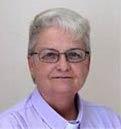The Bible speaks authoritatively to four thousand years of time. This is because of the diversity of the book. The Bible speaks from diverse experiences through which God’s people draw conclusions about the Word for them in their own lives. What we know about the many thousands of years of instructing generations about life is a help in teaching God’s Word to others.
Preconceived ideas without using the Bible for reference is a hazard if we choose to know what is in the text. When that happens we pick and choose quoting the verses that validate our ideas. We don’t go to the bible to be instructed.
The church has ostracized homosexual people from church and community life. Homosexuals have been tortured and killed in the past when they came out or were outed. We have come to believe that the Hebrew was a perfect patriarchal family model but that imaginary family did not exist then nor does it exist today. It never has and least of all in biblical times. The family values of the early Hebrew people perceived women and children as property.
Examination of the story in Genesis shows God creating Adam. This one person, it turns out, is divided into two by God, one male, one female. They are each part of a single creation. Their sex differentiates them, but there is no difference in status. They were to be partners – an answer to loneliness. There is no differentiation regarding physical attributes. This differentiation came later as reader’s agendas are added.
Since there were so few Hebrews, having children was very important for survival of the race. If they were to have any security in their hostile world, they had to grow. Laws emerged dictating that sexual activity was for procreation. From this grew the interpretation of Leviticus as antagonistic to any sexual activity not for populating.
Homosexuality is a word unknown to biblical writers. The word was coined during the last half of the nineteenth century. The concept of a same gender couple loving each other, each choosing to spend his/her life with the other in Holy union is not even distantly implied in the two Levitical prohibitions of “…a man lying with a man as with a woman” (Leviticus 18:22 and 20:13)
Most Levitical laws are aimed at stopping Jews who worship one God from participating in any of the pagan rites of the nations in the middle of whom they find themselves living. Pagan fertility rites, aimed at insuring the fertility of a wife, including sexual intercourse with a pagan priest, male or female. Identified as abhorrent in Leviticus is pagan same-gender fertility rites. Homosexuality is not the issue and is not addressed by these verses.
The New Testament is based on the life of Christ. This fact was uppermost in any examination of Christian biblical teachings. Jesus is the originator of the Christian faith. The early church intended to exhaust authentic accounts of Jesus’ life and ministry. In the four first books of the New Testament not one of the four Gospel writers records anything on the subject of homosexuality. In fact, they say nothing on the subject of same gender sex. The objective was that the writers be intent upon leaving an accurate account of Jesus’ life and teachings. There is no record of him saying anything that would condemn same gender love.
Jesus broke old laws. This not following the laws as we know got Him in a lot of trouble. He said that law is for the service of human beings, not vice versa. The young church debated the application of the old laws and wrestled with whether or not new Christians needed to obey them. It is not true, as some have argued that this early Church decision dealt only with the food laws. This benchmark decision by the disciples and apostles of Jesus lifts the old food laws and specifically retains only the sexual laws against promiscuity.

Ordained in August 2006, Rev. Suzie Chamness served as Senior Pastor of Spirit of Life MCC of New Port Richey, Fla., beginning in 2009, having served as volunteer clergy for the congregational care ministry at King of Peace MCC and as chaplain at Bon Secours Maria Manor senior care facility, both in St. Petersburg, Fla. In June 2006 she earned a masters of divinity degree from the Florida Center for Theological Studies in Miami, followed by a doctorate in ministry from Andersonville Theological Seminary.
